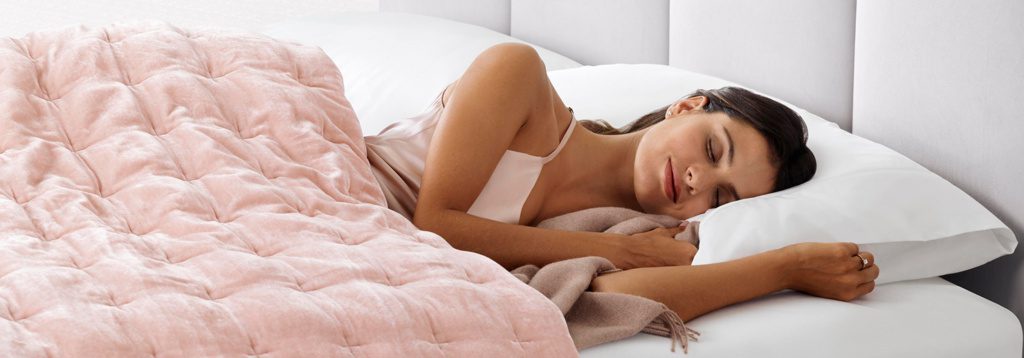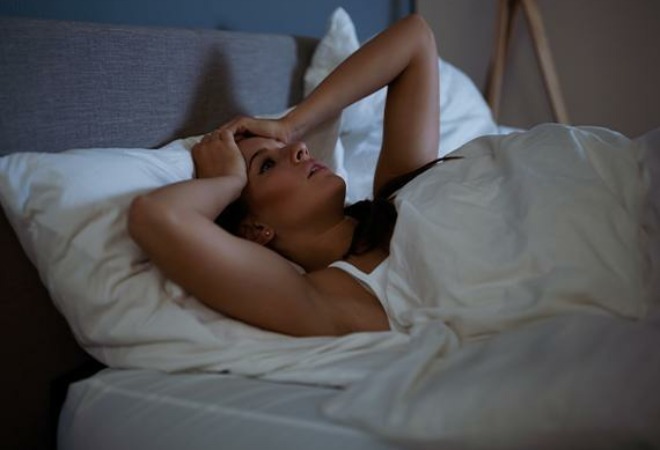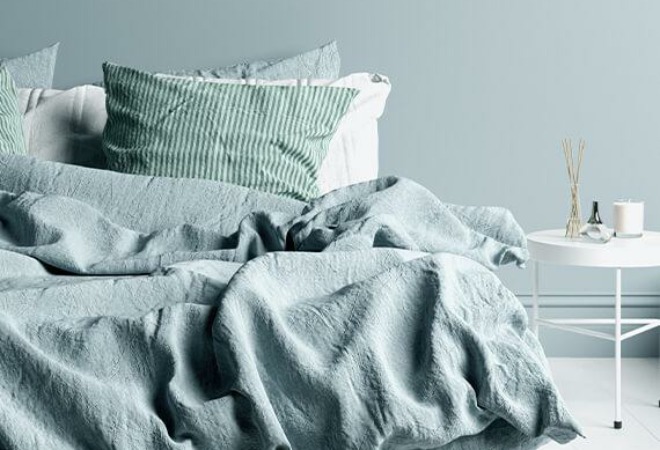Quality sleep is key for our emotional and mental well-being. We all know how we feel when we’re sleep deprived – irritable, fatigued, groggy …
Our mental well-being and sleep are strongly connected, and this is even more so for those with mental health concerns.
We spoke to Dr Kimberly Falconer, Clinical and Sleep Psychologist, to help us better understand the importance of sleep when it comes to mental health , and how we can improve our sleep hygiene for better sleep and well-being.
HOW DOES SLEEP AFFECT YOUR MENTAL HEALTH?
While it was almost a century ago that Virginia Woolf famously claimed, “one cannot think well, love well or sleep well, if one has not dined well”. We might also suggest adding to this, if one has not slept well! To do things to the best of our ability, sleep is paramount. Within the landscape of mental health, the essence of sleep is fundamental, especially in light of the recent ‘Sealy Sleep Census’*, highlighting the fact that two-thirds of Kiwis wake up every day feeling tired.
Traditionally, poor sleep or sleep deprivation are seen as symptoms of mental health difficulties, and so focusing on the mental health issue could cause a flow-on improvement in sleep. However, in more recent years, we have come to see that the relationship is more bi-directional. There is a connection between sleep and mental health. In other words, poor sleep can affect your mental well-being and cause psychological distress. It is not just the other way around. The ‘Sealy Sleep Census’ data revealed that 80% of Kiwis reported poor sleep, which resulted in difficulties with their mood or ability to function.
Improving the quality of your sleep can go a long way to improving your mental well-being and mood. This means that a band-aid approach is no longer enough for sleep concerns, and proactive intervention can assist in the process of curtailing the development of debilitating depression or anxiety.
Within psychology we talk about emotion regulation and the different skills we can use to reduce our vulnerability to negative emotions. This helps reduce the likelihood of us getting into that state of ‘emotional mind’ where our emotions can take over and control our thoughts and actions in unhelpful ways. The key areas we can focus on to do this include regular exercise, balanced eating, managing physical illnesses, building mastery into our days, and reducing our intake of alcohol and drugs. Sleep has traditionally been viewed alongside these areas as a means to improve mental well-being, with an emphasis on getting enough good-quality sleep. However, instead of considering these as silo, individual factors, it’s perhaps more accurate to start viewing sleep as the umbrella across these dimensions. If we are not sleeping well, it becomes significantly harder to make good decisions about eating and exercising. Similarly, we become vulnerable to using stimulants like coffee and alcohol in unhelpful ways, and it’s more difficult to make the right decisions about managing physical ailments and initiating activities in our day-to-day life. So once again, we see the primary role that sleep psychology plays within mental health, rather than its traditional position as a second-order, flow-on effect.
Sleep affects mental health differently across different people. The importance of sleep across these areas of emotional health becomes even more pronounced in certain areas, like men’s mental health, where there is a current awareness that men respond differently to mental health problems. Research consistently shows that females more commonly report poor sleep and seek treatment for insomnia. In the ‘Sealy Sleep Census’ we saw a similarly skewed response, with more females acknowledging the impact of poor sleep on their emotions and functioning the next day.
International research on depression shows that males tend to be three-times more likely to die by suicide and three-times as likely as women to become dependent on alcohol. Reasons for the gendered discrepancy in help-seeking behaviour tends to multi-faceted. Traditional gender stereotypes can prevent males from showing vulnerability and asking for support; males can sometimes present with different types of symptoms, like anger or irritability. Males also tend to be more likely to reach for alcohol, drugs or other problematic coping behaviours, rather than talking about their concerns. They may also resort more commonly to escapist behaviours as well, such as throwing themselves into their work.
Changing the stigma around mental health, as a weakness, will go a long way in terms of helping men get the right support; however, the onus is not just on the individuals struggling, but also on the health service providers to ensure they are now screening for and opening up conversations about mental health difficulties amongst their male clientele.
Similarly, the current Covid-19 pandemic is seeing an increase in mental health issues, such as anxiety and depression, particularly among front-line workers and high-risk populations across the country (and globe). Contextual factors associated with the pandemic such as working from home and being in isolated states of lockdown, increase the risk of people changing their sleep habits, or not getting sufficient social contact or exercise, which increases their vulnerability to mental health difficulties.

WHAT IS THE RELATIONSHIP BETWEEN SLEEP AND MENTAL WELL-BEING?
While we idealise sleep as a time of peace and calm, the process of sleep is actually active. First and foremost, sleep is a time when we process our emotions from the day, particularly during REM sleep, the parts of our brain involved in thinking and memory are especially active. As a result, getting sufficient, restorative sleep is essential, in order to ensure we do this effectively and make sense of our experiences and emotions.
Poor sleep results in mental fatigue, particularly when we don’t sleep adequately for a consistent period of time. When we have not had enough good-quality sleep, we become less efficient at processing information in our daily lives. Brain-fog, or a lack of mental clarity, is one of the most common symptoms reported by people with insomnia.
Sleep deprivation affects mental well-being and mood, typically making us more irritable. This not only impacts our relationships, but also makes it difficult to make healthy decisions that also help contribute to improved mental health.
The bi-directional relationship between sleep and mental health means that conditions like depression or anxiety can interfere with our sleep. In particular, they can cause fragmentation of our sleep and throw off our circadian rhythms, making it harder to stick to a consistent, optimal timing each day. Due to the nature of the relationship between sleep and mental health, it is important that they are worked to be improved in tandem, as one can not fully function without the other.
CHANGE OUR SLEEP, CHANGE OUR LIFE
It’s empowering to know that by taking proactive steps with our sleep, we have the ability to strengthen not only our immunity against physical illnesses, but also against sleep and mental health concerns. By integrating these five recommendations into your daily routine, you can make good steps towards improving your sleep and mental well-being.
1.
FIND YOUR RHYTHM
Sleep efficiency is about making the time in bed count. Finding the perfect balance of sleep time is a great way to set routine and properly associate your bed with sleep in your mind. Too much awake-time in bed (whether trying to force sleep, or engaging in activities like work or watching Netflix) will start to weaken the link between your bed and slumber … Work out the optimal amount of sleep you need, and remember this is different person-to-person. Also work out the optimal timing for your sleep, as this may depend on things like shift work, managing children, and your own natural rhythm. Setting rhythms and routines is a great start to better sleep and mental well-being.
2.
BE REGULAR
Once you know what you need to make your sleep efficient, stick to it. Consistency is key, especially across different weekdays and different places you may need to sleep. Grabbing extra sleep-ins on the weekend, or late nights to socialise, can lead to ‘social jetlag’ and an interference with our circadian rhythm. Try to go to bed and get up at the same time every day, regardless of what you have scheduled or how (poorly) you slept the previous night. Even though this feels difficult at the time, it’s worth it to invest in better sleep long-term.
3.
OPTIMISE YOUR ENVIRONMENT
Make your bedroom your retreat. From the comfort of your bed, to the items around you, and the warmth and light of the space – getting your bedroom right is key. Our brain and body need to drop their core temperature to initiate sleep and most people fall asleep more easily in a room that’s cooler. It’s also important to stay cool overnight, as being too hot can interfere with sleep. Minimise light and noise, through ear plugs or white noise machines, if necessary.
4.
KEEP NAPS SHORT
Many people feel a mid-afternoon slump in mood and alertness, especially after a poor night’s sleep. This is because nature intended that we take a nap in the middle of the day. Research on napping suggests that an afternoon nap, as short as ten minutes, can enhance alertness and mood, especially after a night of poor sleep.
If you have the opportunity for an afternoon nap, take one, you will feel more alert and energetic afterwards. However, limit it to 45 minutes and avoid taking it after 4pm; otherwise you may enter deep sleep which causes grogginess and reduces the ability to fall asleep at night.
5.
MOVE, MOVE, MOVE
People with insomnia tend to lead more sedentary lives than good sleepers. The lack of physical activity can inhibit the daily rise and fall of our body temperature and many people get caught in a cycle of reduced energy and physical activity, and worse insomnia.
Exercise improves sleep and mental health by promoting a significant rise in body temperature, followed by a compensatory drop a few hours later. This drop makes it easier to fall and stay asleep. The beneficial effect on sleep is greatest when exercise occurs within 3 – 6 hours of bed-time.
Think creatively and experiment with whether you sleep best after morning, afternoon, or evening exercise. Just remember to have at least 3 hours between exercise and bed-time, and that daily moderate exercise is better than intermittent intense workouts. Exercise can also be accumulated across the day, so make it fun, and make it work!
*The ‘Sealy Sleep Survey’ was conducted by Colmar Brunton on a nationally representative sample size of 500 people and has a margin of error of +/- 4%.




